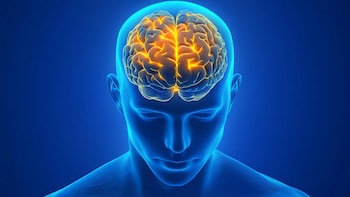





The organization of the environment has a direct impact on the mental healthand it is not simply an aesthetic question. Live in an environment messy can increase the stressthe anxiety and affect the productivity daily. According to Daniel Levitinneuroscientist at McGill University in Montreal“clutter and disorganization can cause chronic anxiety disorders in some people.” Furthermore, the cortisol, the “stress hormone”, is associated with disordered environments, which increase the feeling of lack of control and overwhelm.
A study published in the Journal of Environmental Psychology done by Catherine Roster showed that disorder can decrease the feeling of well-being, happiness and the security that a person obtains from being in their personal spaces. Roster, professor at the Anderson School of Management at the University of New Mexicoexplained that a disorganized environment can affect the way we feel about ourselves and the space we inhabit, contributing to problems such as burnout and poor decision making.

The benefits of an organized space are both for the mental health as for the physical health. Joseph Ferrariprofessor of psychology at the University DePaul and an expert in research on disorder, highlights that organizing can improve emotional and physical problems such as anxietyhe exhaustionthe productivity and, in general, the quality of life. “You will feel less exhausted and increase your productivity in the office if you learn to organize and organize yourself,” says Ferrari.
Neha Khoranaa clinical psychologist specialized in the benefits of organization, mentions that organizing helps regulate anxietysince “being disorganized is associated with higher levels of anxiety.” Besides, Libby Sanderassociate professor of Organizational Behavior at the University bond of Australiapoints out that a tidy home is a predictive factor for better physical health and activity. Order makes time management easier and has been linked to a better diet and lower risk of being overweight.

The relationship between the disorder and eating habits was investigated in an article by Environment & Behavior. Its authors, Lenny R. Vartanian, Kristin M. Kernan and Brian Wansinkfrom the universities of New South Wales and Cornellrevealed that disorganized environments can lead to an increase in the consumption of unhealthy foods.
In the study, 98 female college students were exposed to an organized kitchen and a chaotic kitchen, with noise and out-of-place items. The results showed that participants in the “chaotic kitchen” and with a “lack of control” mentality consumed more cookies than those in an organized environment with a focused mentality.
This experiment is based on the theory of “ego depletion” or ego depletion, which suggests that self-control depends on a limited resource, and a chaotic environment can deplete those resources, hampering the ability to resist food temptations.

To implement changes, the psychologist Natalie Christine Dattilofrom the Faculty of Medicine of harvardadvises starting with manageable goals. Organizing an entire home can be overwhelming, so she suggests starting small, like a single drawer or shelf. To make the process more enjoyable, she recommends listening to music or audiobooks during organization and enjoying the tidy space afterwards.
Khorana recommends setting aside a specific time to declutter, while Roster advises using visualization as a motivation tool. Imagining the end result can be a powerful form of inspiration to start organizing. Additionally, Roster suggests asking for help: family, friends, or even professional organizers can provide support.
Julie Morgensternauthor of Organizing from the Inside Out, recommends sorting objects into three categories: keep, throw away, and relocate. It is crucial to assign a place to each object you decide to keep, purge those that are not used and keep sentimental or seasonal objects separate. For those who don’t want to get rid of certain items, such as keepsakes or documents, Morgenstern suggests storing them somewhere outside the home to free up space without the “trauma” of throwing them away.

Ferrari warns about a popular tip: touch objects to see if they “spark joy.” According to him, studies show that touching an object generates greater emotional attachment, which can make organization more difficult. “It is better to logically assess whether to keep something or not, without the added emotion of holding it”recommends.
Finally, Sander remembers that the organization must also encompass the digital clutter. Backed up emails, unread subscriptions, and scattered files can be as disruptive as physical clutter. His recommendation is to take five minutes a day to organize your inbox and digital folders. “With just a few minutes a day, you will be able to create habits to stay organized”he assured National Geographic.
Dattilo concludes that getting organized requires decision making, emotional regulation, and patience, but it is a skill that can be learned. “When we intentionally and lovingly care for our home,” she says, “we send ourselves an important message that we are worth the time and effort it requires.”
